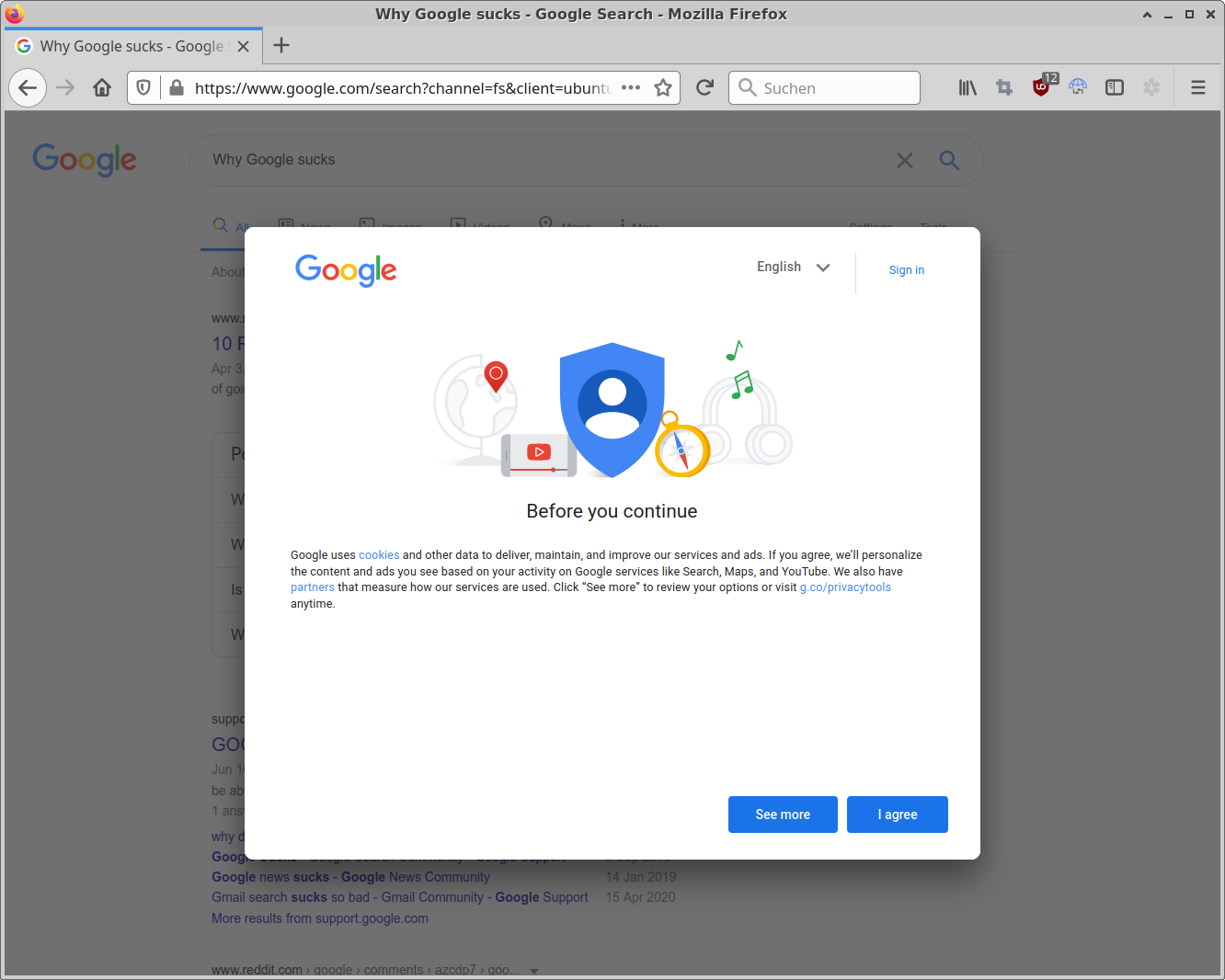

November 2024 will be known as the time when killing peanut, a pet squirrel, by the New York State DEC swung the US presidential elections and shaped history forever.
The hundreds of millions of dollars spent on each side, the tireless campaigning by the candidates, the celebrity endorsements ... all made for an open race for months. Investments evened each other out.
But an OnlyFans producer showing people an overreaching, bureaucracy driven State raiding his home to confiscate a pet squirrel and kill it ... swung enough voters to decide the elections.
That is what we need to understand in times of instant worldwide publication and a mostly attention driven economy: Human fates, elections, economic cycles and wars can be decided by people killing squirrels.

RIP, peanut.
P.S.: Trump Media & Technology Group Corp. (DJT) stock is up 30% pre-market.

If you clear your browser cookies regularly (as you should do), Google will annoy you with a full screen cookie consent overlay these days. And - of course - there is no "no tracking consent, technically required cookies only" button. You may log in to Google to set your preference. Yeah, I'm sure this is totally following the intent of the EU Directive 2009/136/EC (the "cookie law").

Unfortunately none of the big "anti-annoyances" filter lists seem to have picked that one up yet but the friendly folks from the Computerbase Forum [German] to the rescue. User "Sepp Depp" has created the base of the following filter set that WFM (updated by "mru62" since):
Add this to your uBlock Origin "My filters" tab:
! Google - remove cookie-consent-popup and restore scroll functionality
! Updated 26.12.2022
google.*###lb
google.*##html:style(overflow: visible !important;)
! And for Youtube
! Updated 26.12.2022
www.youtube.com##.opened
www.youtube.com###dialog
www.youtube.com##.no-transition.yt-upsell-dialog-renderer.style-scope

The laptop systems aboard the International Space Station (ISS) have been infected by computer viruses and worms multiple times.
The W32.Gammima.AG virus made it to space in July 2008. And it happily spread from laptop to laptop onboard the ISS.
The virus has been written to steal credentials for some common games. It is unknown how many of these were run in orbit. The latency would kill the experience for sure.
I am sure there have been policies in place to prevent astronauts carrying personal soft- and hardware up to the ISS. Personal items must be explicitly applied for and will only be approved after severe scrutiny of each item. Even beyond the obvious security considerations, this is necessary as the launch weight needs to be calculated exactly.
NASA and Roscosmos both have very strict policies for their personnel and strict training to make sure they know and follow policy.
The group of astronauts primarily affected by the policy is very well known and counts a few dozen heads.
Still at least one infected USB stick made it up to the ISS and could spread its malware. Other infections have happened and we can assume similar infection vectors.
So the policy has proven unenforceable. It is broken. It is still correct per se. There is nothing wrong with prohibiting personal soft- and hardware in a high risk environment. So the policy stays in place. NASA still needed to make sure to rely much less on its effectiveness.
Hence NASA did the only sane thing: Move from an unenforceable policy to a technically feasible solution, significantly reducing the security exposure. In May 2013 NASA announced the ISS laptops are being migrated to Debian 6. Imagine how much pressure Microsoft must have put up to prevent such a technical decision due to the adverse marketing message it provides along the way. And still the engineers at NASA saw this as the best way forward.
The take-away message here is: Security by policy does not work.
Continue reading "Security by policy does not work"





